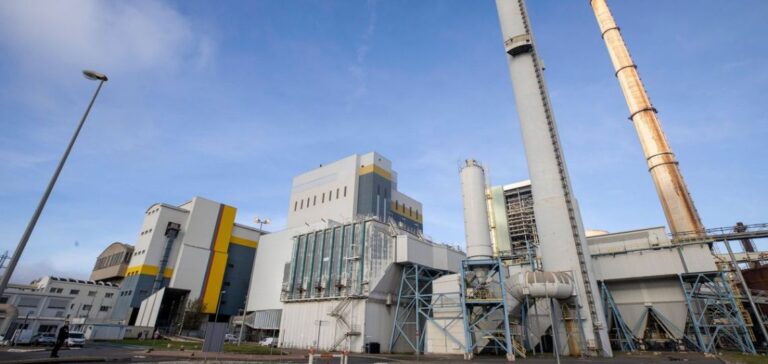The Provence biomass plant in Gardanne, located in the Bouches-du-Rhône department, is subject to a new public inquiry on its wood sourcing strategy, GazelEnergie announced on 5 May. The interdepartmental inquiry spans 324 municipalities across three French regions and aims to inform the prefect’s decision on the site’s operating permit.
An industrial site under conditions after operations resume
After being shut down for over a year, the 150-megawatt plant resumed operations on 1 January following an agreement reached in late November 2024 between GazelEnergie and the French State. The agreement includes a 50% reduction in annual operating hours, capped at 4,000 hours, and a biomass supply ceiling of 450,000 tonnes per year. This adjustment follows the company’s termination of its initial contract with the State due to rising biomass costs.
GazelEnergie, a subsidiary of Czech group EPH controlled by Daniel Kretinsky, stated that the planned production volumes would rely on a revised sourcing mix. The company reported it would use 240,000 tonnes of local sawmill residues, 150,000 tonnes imported through Fos-sur-Mer port under a business partnership, and 60,000 tonnes of recycled wood.
Inquiry mandated by administrative court ruling
The plant’s restart occurs under legal scrutiny. In November 2023, the Conseil d’État (France’s highest administrative court) ordered GazelEnergie to assess the indirect impacts of its activities, particularly on forest ecosystems. This requirement followed a court ruling affirming that industrial sites must evaluate both direct and indirect environmental effects.
The ongoing assessment has triggered the current supplementary public inquiry. It aims to evaluate the revised biomass supply plan’s consequences across the affected regions: Provence-Alpes-Côte d’Azur, Occitanie and Auvergne-Rhône-Alpes.
Targeted local and international supply
GazelEnergie claims that local sourcing will represent a maximum of 5% of the technically and economically harvestable wood in the defined area, which the company says adheres to sustainable thresholds without compromising forest viability. Additional sourcing includes certified wood chips imported from Spain (66%), Brazil (30%) and Italy (4%).
The continuity of operations at the bulk terminal in Fos-sur-Mer is also part of the plan’s logistical considerations. The site is expected to handle a significant portion of the imported biomass under a dedicated partnership contract.






















